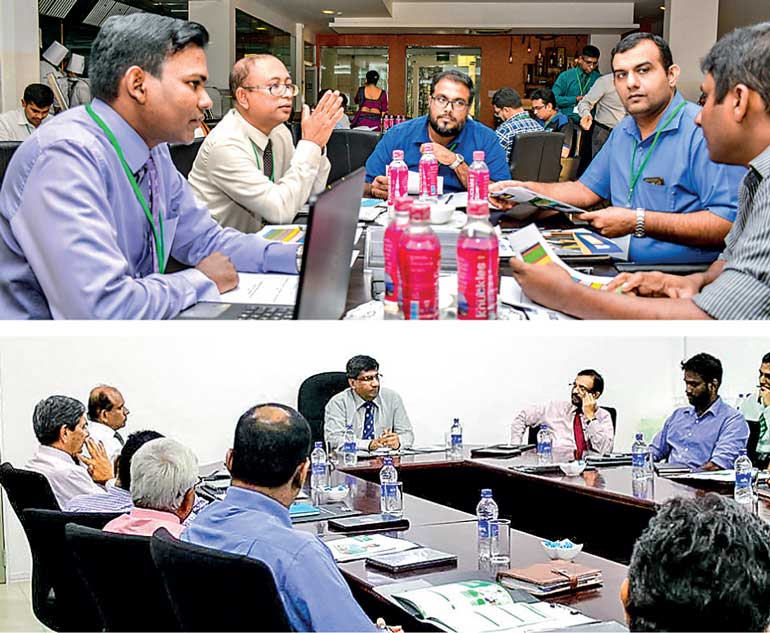Tuesday Feb 17, 2026
Tuesday Feb 17, 2026
Monday, 29 January 2018 00:00 - - {{hitsCtrl.values.hits}}
SLIIT is among the first educational institutes in Sri Lanka to develop curricula recognised by the University Grants Commission (UGC), for its BSc (Hons) and BBA (Hons) degree courses, clearly demonstrating the Institute’s high academic standards in the ever-changing field of Information Technology. Taking this benchmark to a higher level, SLIIT’s Faculty of Computing and Faculty of Engineering recently introduced a Department-Industry Consultative Board (DICB) meeting.
The objective of the meeting is to maintain the high quality of the graduates produced by the institute. SLIIT graduates have contributed significantly to the IT industry. The aim of the recent DICB meeting is to give the industry and the academia an opportunity to exchange views on how best to achieve a quality graduate with skills relevant to industry demands.

SLIIT curriculum should be based on industry requirements; therefore DICBs of all the departments of each faculty will continue to update the curriculum every year by organising a forum with industry representatives. The meetings will mainly play an advisory role to each faculty on how study programs need to be improved. Data science, business analytics and logistics and supply chain management are specialisations that were identified at DICB forums and introduced at SLIIT to broaden the academic areas.
Industry advisors for SLIIT’s Engineering Faculty are primarily MAS and the Ceylon Electricity Board while companies such as Virtusa, Accelerite, Pearson, Brandix, SLT, and Sampath Bank are the main industry advisors for the Computing Faculty. For the Business Faculty, companies including Commercial Bank, Jetwing Travels, Jetwing Eco Holidays and DSI Samson Group are the industry advisors. The changes recognised within the forum are sent to the Curriculum Advisory Committee (CAC) at SLIIT for final approval.
SLIIT CEO/ Vice Chancellor Prof. Lalith Gamage explained: “At SLIIT we place emphasis on consistently upgrading our curricula to keep up with ever-changing industry demands so that we can continue to produce high quality graduates equipped to meet emerging needs. This helps our students to climb up the corporate ladder with confidence and skills.”